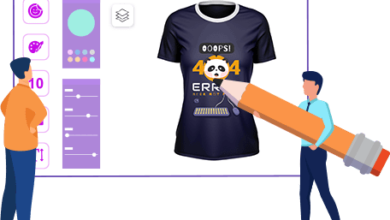What is a Learning Management System (LMS) and Why do you need one?

LMSs, or learning management systems, come in different forms and sizes these days. They’ve been attracting more and more attention from all types of businesses due to the wonderful benefits they have in store for organisations. However, anyone new to the realm of LMS is sure to have a lot of questions: What is an LMS, exactly? What are the features that must be included in the web design of a learning management system (LMS)? And why stands to gain the most from them?
This guide is for you if you’re debating whether or not to invest in an LMS. We’ll look at two key areas to help you make an informed decision: who can benefit from an LMS and what features you should look for to get the most out of it.
What is an LMS?
Before we begin, it’s critical to first define what is lms and different types of learning management system is. So, to make things easier, let’s break it down.
Learning – The goal of an LMS is to make learning activities easier and more efficient by delivering training programs in a variety of formats.
Management – It aids in the management of the entire learning process by allowing you to create training modules, store course information, and track progress, among other things.
System — This is essentially a system or a one-stop shop for all of your training needs.
In other words, learning management system development entails the creation of a platform on which your organization’s learning programs can be implemented and managed. It will have both front-end and back-end interfaces, allowing your learners, trainers, administrators, and management to engage with it in a seamless manner. On a single platform, for example, trainers may build courses, learners can access study materials and training programs, and management can track and monitor progress.
Why do companies need an LMS today?
In theory, creating an all-in-one learning platform seems fantastic. But, specifically, how can it help businesses? Let’s have a look at what we’ve got.
-
Increased efficiency
The importance of delivering efficiency through a well-designed LMS solution is understood by experienced USA LMS developers. Having all of your training resources in one place, for example, can make the teaching process easier for your trainers. With standardized templates and freely available learning content, even course building becomes a painless and seamless procedure. On a single learning platform, they may distribute quizzes and assignments, track each student’s progress, and change course content.
All of this could, in the end, result in significant time savings and efficiencies for your staff.
-
Improved learner engagement
A learning management system (LMS) allows your students to access training programs and course materials whenever and wherever they desire. It eliminates the requirement for students to be available at specified times, as is the case with traditional classroom sessions. It’s the ideal answer for everyone who wants to learn at their own pace.
Trainers can also incorporate movies, presentations, and webinars into their courses to make them more engaging and accessible. To take the learning experience to the next level, you can use social learning and gamification tools. It goes without saying that when learning becomes more accessible, convenient, and engaging, learner engagement and learning outcomes will improve.
-
Better control of the learning process
You get a 360-degree picture of the learning process when all of your learning activities are in one place. It will enable you to standardize tasks such as course development and delivery, as well as assessment and tracking. It’s also useful for ensuring compliance.
An LMS platform will also provide you access to a massive amount of data that would otherwise be impossible to obtain with a manual approach. In any business, data is a potent weapon. Setting quantifiable goals, tracking activities, assessing progress, identifying gaps, quickly implementing solutions, and making insight-driven decisions will all be possible with it. These are some of the advantages of having a firm grip on your company’s learning process.
-
Higher scalability and adaptability
Experienced LMS development businesses in the United States can provide a highly scalable system that is tailored to your company’s specific requirements.
If money is a concern, for example, an open-source learning management system may be the best option. These are less expensive than specialized eLearning programming, yet they may still be adequate for your requirements.
For a low-budget, tried-and-true platform with simple functionality, a WordPress learning management system, for example, could be a good alternative. However, custom LMS creation is an option if you have specific user requirements and demand a feature-rich LMS.
Regardless of business needs or budget, there is an LMS solution for you. These platforms can also be quite adaptable, allowing them to scale quickly.
-
Significant cost savings in the long run
When efficiency improves dramatically, cost reductions become a foregone conclusion. Consider that for a moment. By eliminating tedious and non-value-adding processes, an LMS may help trainers build and deliver programs considerably faster. This permits them to work faster and complete more training tasks.
When course materials and learning activities are available online, however, the traditional costs of traditional classroom sessions, such as printed materials and overheads, become obsolete.
In fact, one of the most important elements driving the adoption of e-learning today is the opportunity to reduce expenses. As a result, IBM, for example, has reported a $200 million saved.




